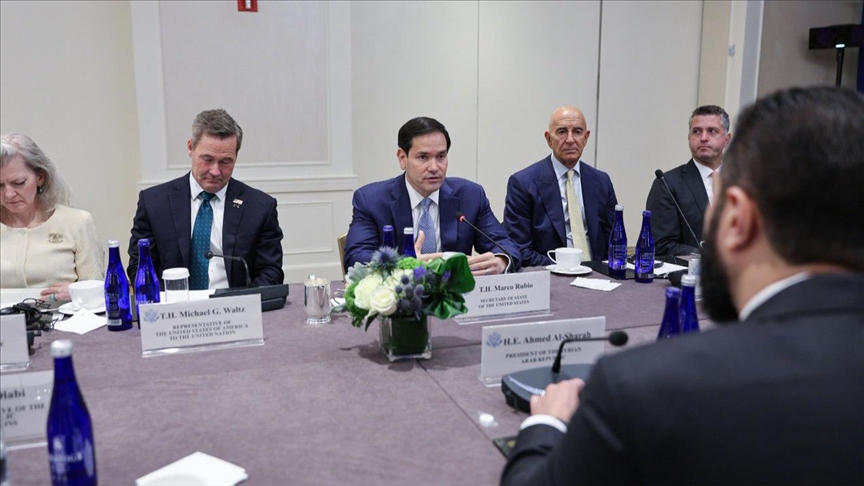US' Rubio says stable, unified Syria key to regional security
US Secretary of State Marco Rubio says Trump administration committed to supporting efforts to build stable, unified Syria

WASHINGTON
US Secretary of State Marco Rubio said Wednesday that Washington, together with its Gulf partners, is committed to supporting efforts to build a stable and unified Syria, stressing that the country’s future is key to broader regional security.
Speaking ahead of his meeting with the foreign ministers of Gulf Cooperation Council (GCC) member states on the sidelines of the UN General Assembly in New York, Rubio underscored that the US approach to Syria is rooted in regional cooperation.
“There are also some unique opportunities, exciting opportunities, that I know we're working on together. One of them is the future of Syria, an opportunity that maybe two years ago, a year-and-a-half ago, would have been unimaginable,” Rubio said.
“The president remains committed, not just from a unilateral standpoint of the United States, but in partnership with every country represented here today, to give Syria every chance possible to build a strong unified state, where the diversity of Syria is respected, but also a place that's stable,” he added.
Rubio emphasized that “the stability of Syria defines the stability of the region,” warning against the country being used as a base by extremists or foreign actors to launch destabilizing attacks.
Syria’s President Ahmad al-Sharaa, who this week became the first Syrian head of state to attend and address the UN General Assembly since 1967, met with Rubio on Monday in New York.
Since the ouster of Bashar Assad last December, Syria’s new administration has pursued political and economic reforms while promoting social cohesion and working to expand cooperation with regional and international partners.
Assad, Syria’s leader for nearly 25 years, fled to Russia last December, ending the Baath Party regime, which had been in power since 1963. Sharaa’s new transitional administration was formed in January.








